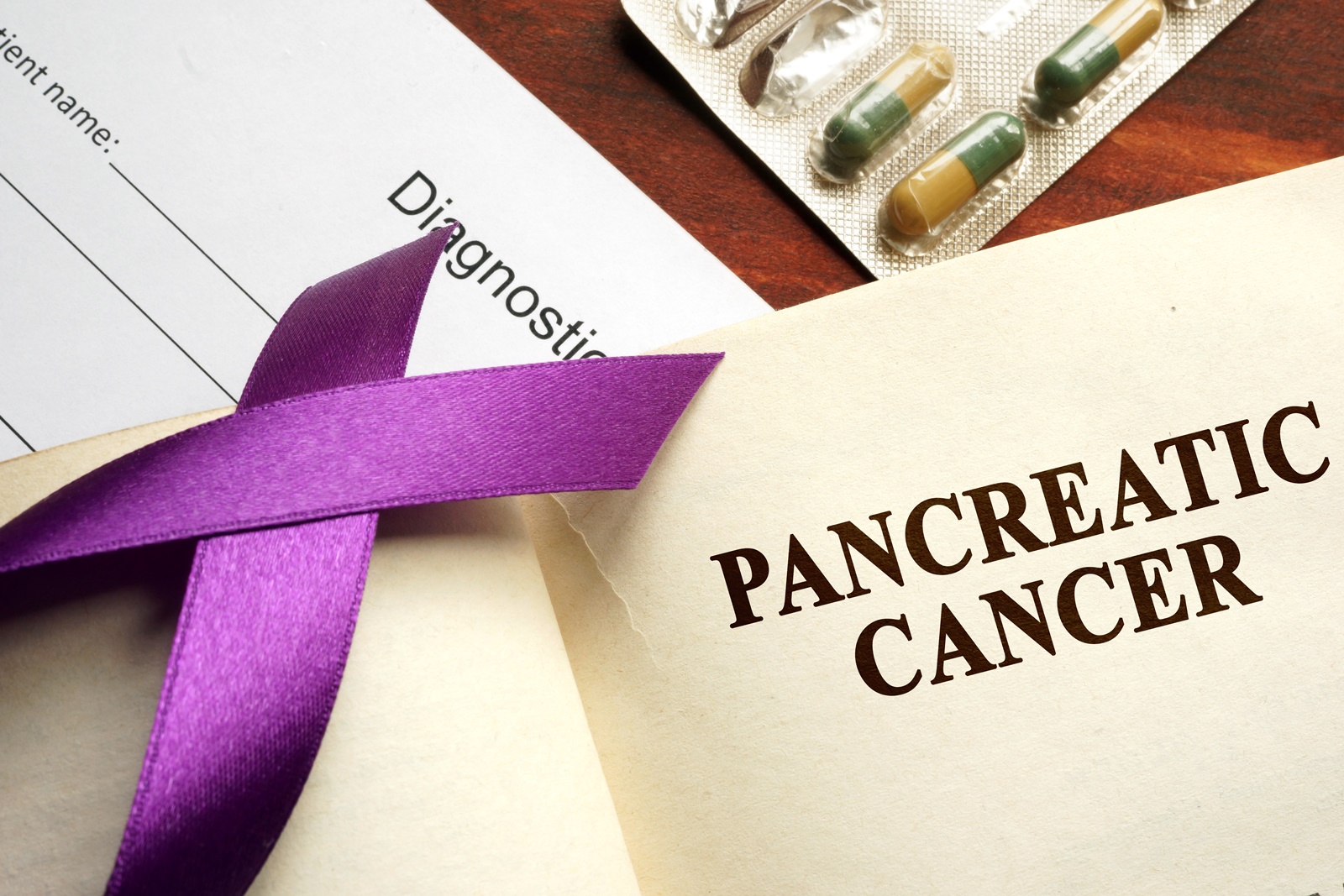What is Pancreatic Cancer?
- Pancreatic Cancer is a cancer that begins in the tissue of the pancreas, an organ behind the lower part of the stomach that makes hormones and digestive juices.
- Pancreatic cancer accounts for about 3% of all cancers in the US and about 7% of all cancer deaths.
- There are several types of pancreatic cancer, but exocrine cancer is the most common.
- Slightly more common in men than women.
What are the Symptoms of Pancreatic Cancer?
Pancreatic cancer is unfortunately difficult to detect early because early pancreatic cancers often do not cause any signs or symptoms. By the time they do cause symptoms, they have often grown large or spread to other parts of the body.
-
Jaundice: The yellowing of the eyes and skin. This is one of the first symptoms and other signs include:
-
Dark urine
-
Light-colored or greasy stools
-
Itchy skin
-
Belly or Back Pain
-
Weight Loss
-
No Appetite
-
Nausea
-
Vomiting
-
Blood clots
-
Enlargement of the Liver or Gallbladder
Contact our office today if you believe you may be at risk and/or are experiencing some of the symptoms listed above. Our team of doctors will determine the course of treatment that is best suited for you.



What are the Risk Factors and Causes for Pancreatic Cancer?
-
Risk factors for pancreatic cancer include the following:
-
Smoking: The risk of getting pancreatic cancer is about twice as high among smokers and about 25% of pancreatic cancers are thought to be caused by cigarette smoking.
-
Obesity: Those who have obesity (body mass index [BMI] of 30 or more) are about 20% more likely to develop pancreatic cancer.
-
Diabetes: Pancreatic cancer is more common in people with diabetes, especially type-2 diabetes
-
Chronic pancreatitis
-
Family history
-
Chemical exposure
-
Age: Almost all patients are older than 45 and about two-thirds are at least 65 years old.
Q & A
A: Workplace exposure to certain chemicals such as pesticides, benzene, dyes, and petrochemicals may increase the risk of pancreatic cancer.
A: When the skin and whites of eyes turn yellow, they signify that you may be experiencing jaundice which is linked to liver problems and some cancers such as pancreatic or stomach cancer.
A: Cigarette smoking is linked to a risk factor and cause for mouth cancer, throat cancer, esophageal cancer, colorectal cancer, liver cancer, pancreatic cancer, larynx (voicebox) cancer, kidney cancer, bladder cancer, and more disorders and cancers.
How is Pancreatic Cancer Treated?
Treatment of pancreatic cancer depends on several factors such as the stage of the disease, location of the tumor, the age and condition of the patient.
- Surgery
Surgery is generally considered as a cure if the tumor is confined to the pancreas. In inoperable cases, it is done only as a palliative option to keep the patient comfortable and free from pain.
- Chemotherapy
Chemotherapy is the use of drugs to kill cancer cells. They may be administered orally, intravenously, or both.
- Chemotherapy may be combined with radiation (chemoradiation) to treat locally invasive inoperable tumors of the pancreas.
- Chemoradiation may also be tried after surgery to reduce the risk of recurrence.
- In patients with inoperable and advanced metastatic disease, chemotherapy may be used alone or in combination with targeted drug therapy.
- Targeted Drug Therapy
The use of drugs that target specific defects within the tumor cells. Treatment is aimed at preventing their growth and division.
- Radiation Therapy
Uses high energy rays and has been recommended as an option to shrink the tumor before surgery in resectable tumors.
At HEMATOLOGY & ONCOLOGY CARE we customize your Pancreatic Cancer care so you can receive the most advanced, least invasive treatment with the fewest side effects. Planning of the treatment involves an interdisciplinary team of medical professionals. This usually implies a meeting of different specialists we have at HOC, called a multidisciplinary opinion. In this meeting, the planning of treatment will be discussed based on the relevant information summarized above.


